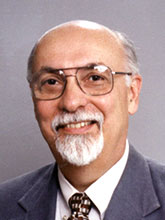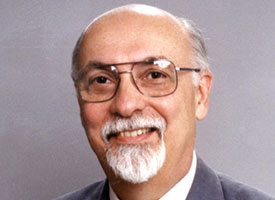With Dr. Bruce Hartung
Q: What would you say to a church worker who struggles, as I do, with Internet pornography? This struggle has been in my life a long time and I can’t break it.

A: That you come forward is a first step, but only the first. What comes next is crucial. These steps may not be in the order that you take them, but please take them:
- The first step in the 12 steps of recovery from addiction is recognizing that a person who is in the clutches of addiction is living a life controlled by the addiction and over which he or she has no power. This is a recognition that you have perhaps already made. If not, make it. If you cannot “break it,” as you say, then it controls you much more than you control it.
- Go to a confessor. Lay your addiction, your action, your behavior at the foot of the cross of Christ. Christ is at your side and will walk with you in your struggle. Even your addiction will not separate you from Christ. One way that is made clear is that you confess your sin with your confessor and that you receive Christ’s forgiveness. But this most certainly does not end your thorn in the flesh. And you will need to return again and again to your confessor.
- Make an appointment to see a counselor who knows what he or she is doing with regard to the addiction process. Use your insurance coverage to both help support the finances needed for this and, if necessary, to find an experienced and qualified counselor. If you are in the Concordia Health Plan, a confidential number to call is the CIGNA number 866-726-5267.
- Join a group. Among those available are Sex Addicts Anonymous (SAA), Sexaholics Anonymous (SA) and Celebrate Recovery (CR).
- Install monitoring/accountability functions on all your computers and any other device through which you have Internet access. One helpful resource is xxxchurch.com, which in order to use, you will need to select accountability partners. I suggest that the accountability partners you use be someone in your SAA, SA or CR group and at least one other person (such as a trusted colleague). In your discussion with them, be sure that they are ready to be in touch with you if sites are accessed that could be problematic.
- Review the xxxchurch.com website to see curriculum, personal confessions, plans for recovery and articles concerning pornographic addiction. After reviewing what is available, start the 30-day curriculum. It is a tough curriculum, but important to do.
- Read. One book that you should read is In the Shadows of the Net: Breaking Free of Compulsive Online Sexual Behavior by Patrick Carnes, David Delmonico and Elizabeth Griffin; published by Hazelden, Second Edition, 2007.
- Be on the lookout for workshops and other opportunities to learn about help for those with Internet-pornography addictions.
There are a host of reasons why it is very, very important for you to address this concern in your life in a more robust way. Likely, I do not need to document them. But I can tell you that there are many negative effects of pornographic use. They are seen in research and in secular literature (see, for instance, The Social Costs of Pornography, published in 2010 by the Witherspoon Institute). But even more central is the spiritual damage of this and its threat to your ministry.
A Canadian study of a couple of years ago found that the average first pornographic experience of young boys was at age 9 (a reduction of several years from an earlier study). It is difficult (and it should be) to underestimate the effects of such early sexual images. They are real issues for many people. Church workers like you are not immune. Through it all, be embraced by Christ’s love and care.
The Rev. Bruce M. Hartung, Ph.D., is professor of Practical Theology at Concordia Seminary, St. Louis. He can be reached at hartungb@csl.edu.
